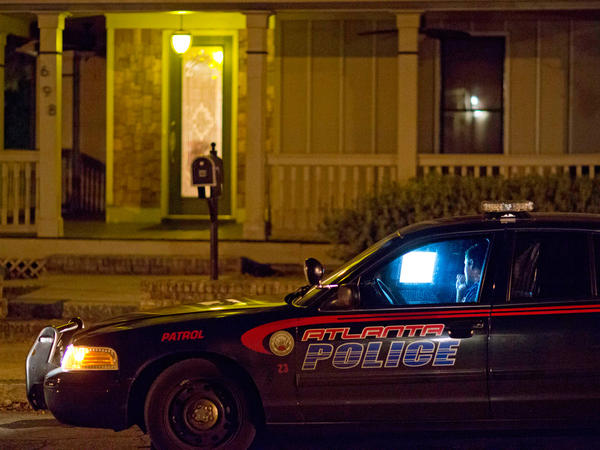 An audio version of this story
An audio version of this story
The city of Atlanta is promising to “vigorously defend” itself against a motion filed in federal court Tuesday that accuses the Atlanta Police Department of willfully violating the court’s order.
The case, Calhoun v. Pennington, dates back to 2009 when Atlanta Police officers stormed the Atlanta Eagle – a gay bar in Midtown — and unlawfully detained its patrons.
Nobody was suspected of committing a crime.
A year later, a federal judge ordered the Atlanta Police Department to — among other things — change its policy related to when it’s OK to detain someone.
APD made the change.
But in 2013, it “un-changed” its procedure, putting the old policy back into effect.
Attorney Dan Grossman represented bar patrons involved in the raid. He says he found the discrepancy while doing a routine follow-up.
“I just did it because as a lawyer, you have to be thorough and you check everything,” Grossman says. “And when I saw that, I was absolutely floored.”
Atlanta officials declined WABE’s interview request, but instead issued the following statement.
The City disagrees with Plaintiffs’ Motion for Contempt in Geoffrey Calhoun et al. v. Richard Pennington et al. filed Tuesday in the Northern District of Georgia alleging that it failed to comply with the December 15, 2012 Consent Order. The City has spent substantial funds and has exerted hundreds of hours complying with the training requirements of this Consent Order, including the hiring of a nationally recognized expert. No language from the Atlanta Police Department’s SOPs has been improperly removed, and its policies regarding stops and other citizen encounters are constitutional. The language that appeared in SOP 3065 is now located in the Search and Seizure SOP 3020. The APD identification requirements of the Consent Order do not apply to the gear that officers were wearing when they removed Ferguson protestors from unlawfully occupying the Downtown Connector and endangering lives. Lastly, officers are routinely recording warrantless seizure and identification checks.
Rather than working with the City cooperatively to better the shared goal of public safety, Plaintiffs have chosen to file an unfounded and wasteful motion. The City will vigorously defend Plaintiffs’ Motion for Contempt and expects to prevail.
In places, however, the city’s defense clearly contradicts the federal court order.
For example, the consent agreement mandates the city “permanently revoke” or amend the old provision – not just move it.
The order also requires officers display nametags unless wearing a “rain slicker or traffic direction vest.” Officers wore riot gear during the Ferguson rally, not a rain jacket or traffic vest.
Ultimately, though, it’s up to a judge to decide whether the city violated the order.
WABE legal analyst Page Pate says above all, the court’s goal is to have the city comply with its order.
“So I anticipate the judge will give the APD an opportunity to change the procedures again,” Pate says. He also says the judge could impose a fine.
So far, Atlanta taxpayers have paid out about $2.7 million related to the Eagle case.
 An audio version of this story
An audio version of this story9(MDAxODM0MDY4MDEyMTY4NDA3MzI3YjkzMw004))








